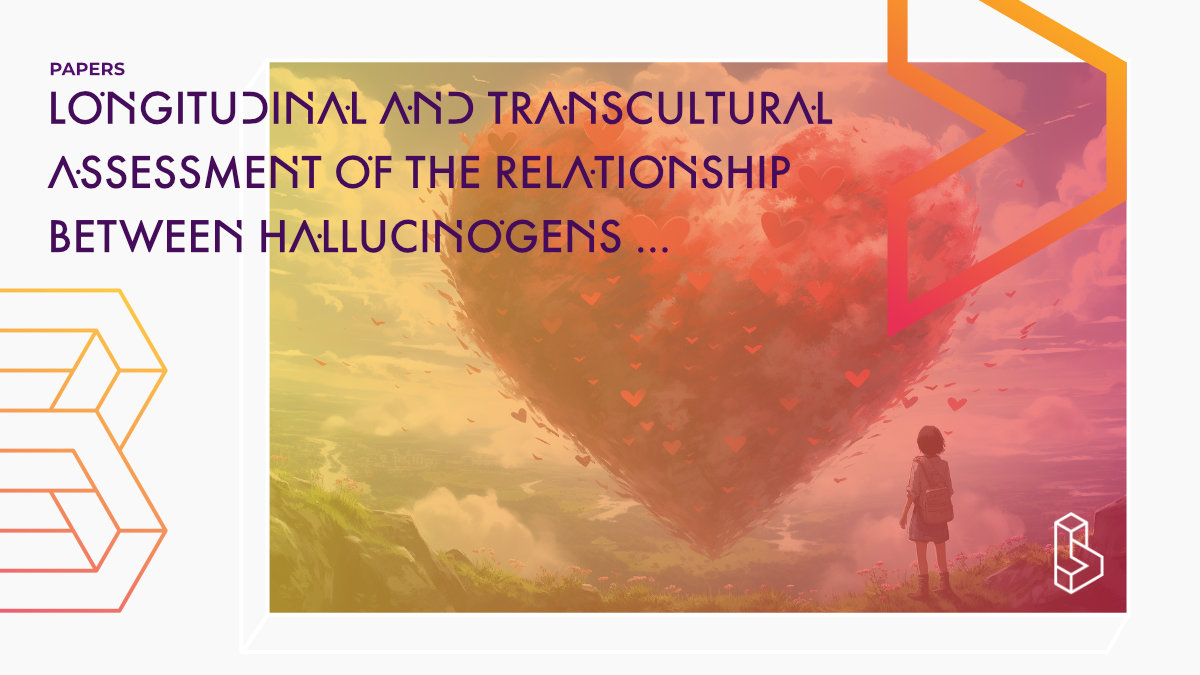This longitudinal transcultural study (n=2971) conducted during the peak of the COVID-19 pandemic in April 2020 collected data through an online survey from English-, Spanish-, and Portuguese-speaking participants. The study found that users of hallucinogenic drugs, particularly regular users, had higher psychological well-being and lower psychopathology scores both at baseline and during follow-ups. Regular hallucinogen users also showed higher scores for post-traumatic growth, especially among subjects with more psychological distress. The study noted variations between cultural contexts, with more English-speaking participants reporting regular use of hallucinogenic drugs.
Abstract of Longitudinal and transcultural assessment of the relationship between hallucinogens, well-being, and post-traumatic growth during the COVID-19 pandemic
“The COVID-19 pandemic has had a devastating impact on the health and wellbeing of the global population. This paper presents the results of a longitudinal transcultural study that was begun at the peak of the pandemic (in April, 2020). An online survey was used to collect data from English-, Spanish-, and Portuguese-speaking participants. The survey collected information about sociodemographics, lifestyle activities, COVID-19-related circumstances, and drug use (with an emphasis on hallucinogenic drugs), as well as involving psychometric questionnaires. Users of hallucinogenic drugs had higher psychological well-being and lower scores on psychopathology scales, both at baseline and during follow-ups. This difference was larger when users were distinguished by frequency of use, as regular users scored higher on psychological well-being and lower on psychopathology scales. Subjects with more psychological distress had lower scores for all scales of post-traumatic growth, but if they were regular hallucinogens users, they had higher scores for post-traumatic growth. When comparing the results between cultural contexts, heterogeneous results were obtained. There were more English-speaking regular users of hallucinogenic drugs. Further research should analyse the potential role of hallucinogens in large-scale catastrophes, with a special focus on post-traumatic growth.”
Authors: José Carlos Bouso, Dóra Révész, Genís Ona, Giordano N. Rossi, Juliana M. Rocha, Rafael G. dos Santos, Jaime E. C. Hallak & Miguel Ángel Alcázar-Corcoles
Summary of Longitudinal and transcultural assessment of the relationship between hallucinogens, well-being, and post-traumatic growth during the COVID-19 pandemic
The global COVID-19 crisis has increased anxiety, depression, post-traumatic stress disorder (PTSD), and general distress in the general population, and the highest rates of mental distress were reported during periods of marked increases in COVID-19 deaths and strict confinement measures.
Psychedelic drugs have been proposed as safe and efficacious tools for the treatment of mental disorders, including depression, anxiety, and PTSD. Some countries have approved the use of these drugs in the framework of programs supporting compassionate use.
Studies on the effect of attending ceremonies involving psychoactive ethnobotanicals like ayahuasca on mental health have shown that psychedelic use may be a protective factor, rather than a risk factor, for mental health problems in the current situation.
Find this paper
https://doi.org/10.1038/s41598-023-41199-x
Open Access | Google Scholar | Backup | 🕊
Cite this paper (APA)
Bouso, J. C., Révész, D., Ona, G., Rossi, G. N., Rocha, J. M., Dos Santos, R. G., ... & Alcázar-Corcoles, M. Á. (2023). Longitudinal and transcultural assessment of the relationship between hallucinogens, well-being, and post-traumatic growth during the COVID-19 pandemic. Scientific Reports, 13(1), 14052.
Study details
Topics studied
PTSD
Population Surveys
Study characteristics
Longitudinal
Follow-up
Survey
Participants
2971
Humans

